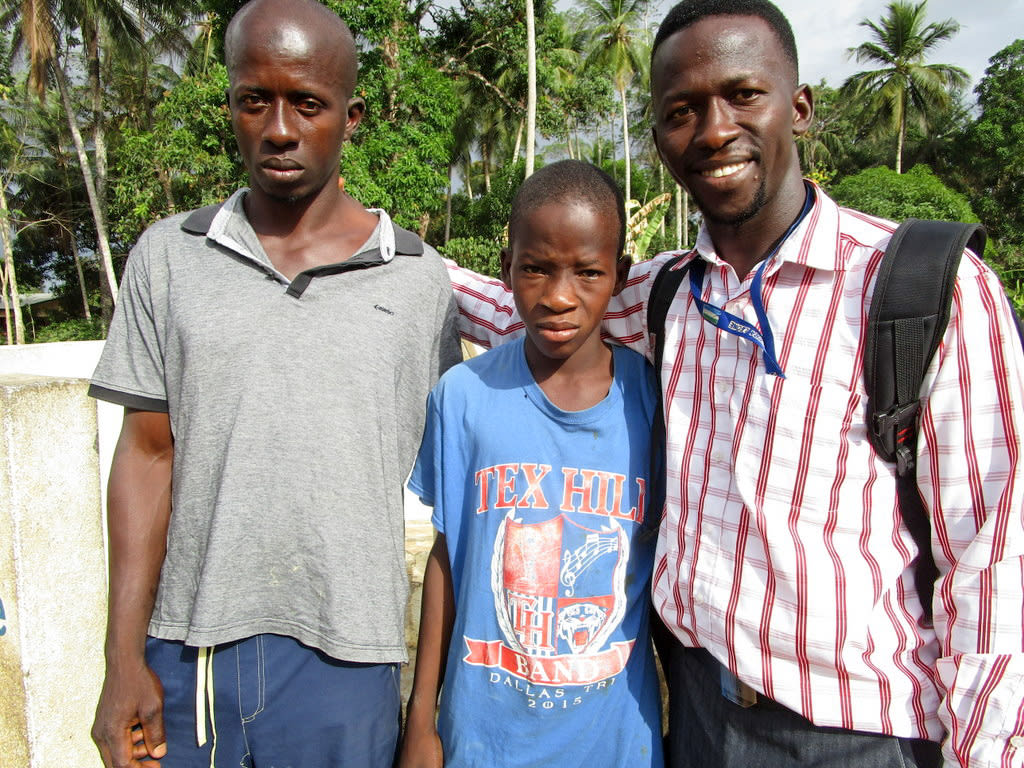This project is a part of our shared program with Mariatu’s Hope of Sierra Leone. Our team is pleased to directly share the below report (edited for clarity, as needed).
Welcome to the Community
The Tombo Community was founded by two brothers; the elder brother settled at Tombo Bana and the younger brother settled at Tombo Lol. Bana is a Temne word meaning big and Lol means small. Back in that time, everyone was either a farmer or fisherman. Before the colonial era, whoever was strong enough could claim any piece of land depending on the amount of people they had to fight for it. This being the case, the Temne men were and are still known for marrying as many women as possible. Their energy to reproduce at a fast rate gives them the upper hand in taking over any community in which they reside. There is power in quantity, especially between warring tribes that fight for dominance.
Early in the morning the men, women and children wake up for the day's hustle. It is a hustle to live in most communities in Sierra Leone, but you will always find a handful of people sitting around doing nothing.
The children carry the burden of the house chores, it is an early morning ritual for them to fetch water before doing anything else. Some men without jobs get up at any time they like, depending on handouts. The farming they had relied on is no longer the large scale it used to be, with the population increase and selling of farmland.
Water Situation
There are two protected wells in Tombo Bana. We monitor one of them, and check out the other while we're there. The organization that installed that well does not visit or take responsibility for any maintenance. That well is used on a daily basis, though it hasn't been chlorinated for years.
We've been visiting our well quarterly, which has informed us that is also has its own issues. Half of the year, everything seems to be in order and the community is happily drawing clean water. The other half of the year, we start getting phone calls from leadership in Tombo Bana. When we visit in person, the problem is obvious: the well sits abandoned, and when we try the pump no water comes out. Opening up the well to see water levels revealed that during the dry months of the year, there's no water in there.
Only half of the battle was getting this community clean water, but now the second half is making sure it's dependable. When this well isn't functional, community members must crowd the un-chlorinated well. But what's most unfortunate is that many locals prefer avoiding the crowd and use the swamp for their water needs instead. We met a little boy who told us he uses the swamp when our well is down; he says that he's not worried because the water is clear enough to see the bottom.
Sanitation Situation
The majority of households in Tombo Bana have their own pit latrine, though the only decent one belongs to the chief. He's got his lined with tiles! The rest are made of large plastic bags sown together and wrapped around sticks. Most of the pits are left uncovered, attracting flies and other pests throughout the day. Snakes are also attracted to the warmth, making most community members too scared to use the latrine at night in the dark. The remaining families that don't have pit latrines share them with their neighbor.
Hand-washing is neglected here. No homes have hand-washing stations, and only half of homes have other helpful sanitation tools like dish racks and clotheslines.
Plans: Hygiene and Sanitation Training
There will be hygiene and sanitation training sessions offered for three days in a row.
Since no hand-washing stations are here, the hygiene and sanitation trainer decided it would be best to teach community members how to build a tippy tap (a hand-washing station built with a jerrycan, string, and sticks). They will use these tippy taps for hand-washing demonstrations, and will also teach about other tools like dish racks and the importance of properly penning in animals.
These trainings will also strengthen the water user committee that manages and maintains this well. They enforce proper behavior and report to us whenever they need our help solving a serious problem, like a pump breakdown.
Plans: Well Rehabilitation
The well marked for this overhaul is dry for four months every year and needs major work to supply adequate, clean water to the community year round. The pump will be removed, and a man will be lowered inside with a hand auger. This hand auger will allow the team to drill several meters deeper to hit a sufficient water column that will ensure the well supplies water throughout all seasons. As the team drills, casing will be installed, transforming this hand-dug well into a pseudo-borehole. PVC piping will connect this lower system directly to the pump, a construction that we know will also improve the quality of water.
Once this plan is implemented, everyone within the community will have access to safe drinking water in both quality and quantity throughout the entire year.

 Protected Dug Well
Protected Dug Well






















